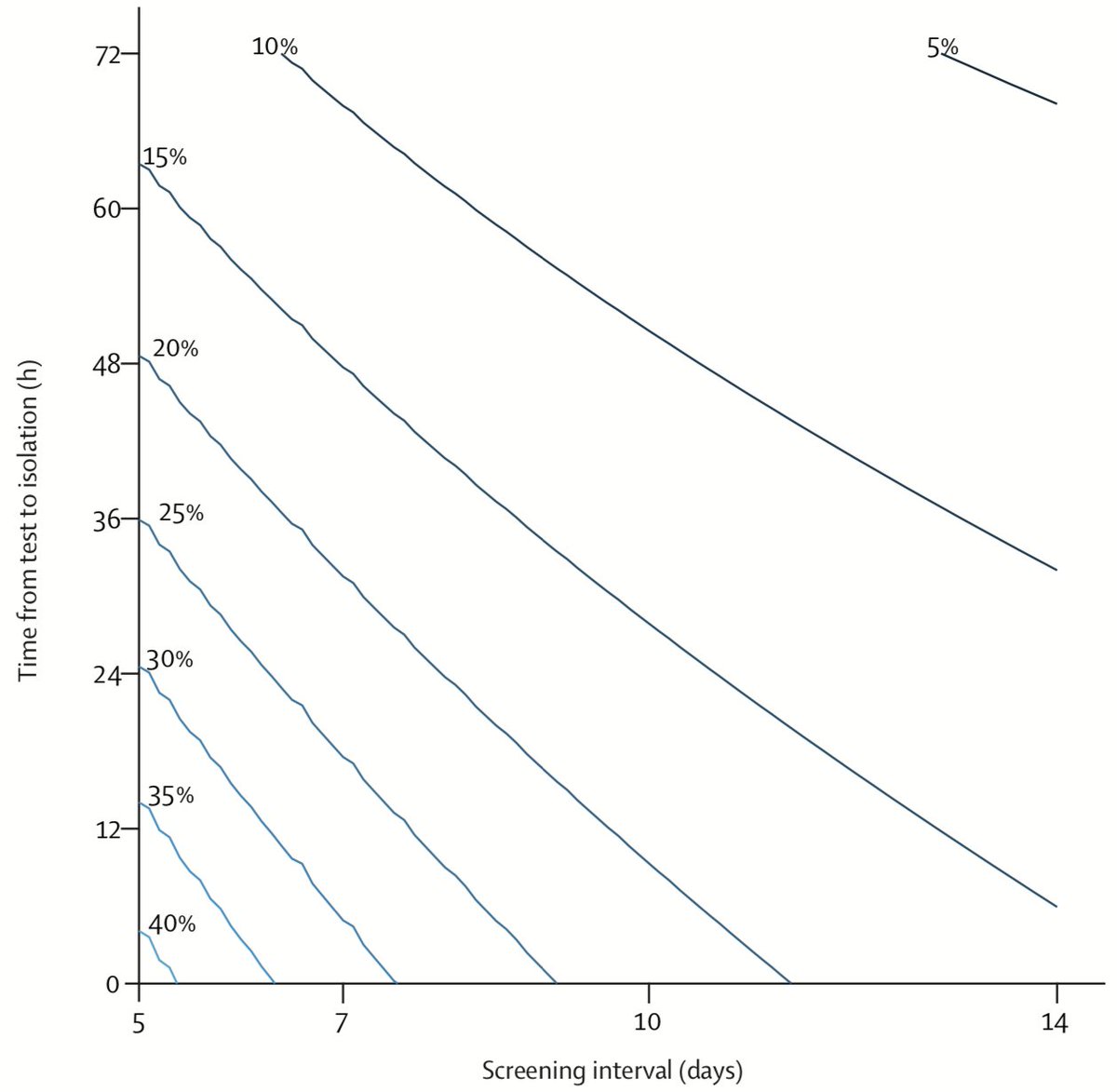For context, around 1.2m people in Hong Kong have registered for recent mass testing drive (out of 7.5m). Of 128,000 initial samples tested, 4 of the 6 positives detected were from recovered patients: https://www.scmp.com/news/hong-kong/health-environment/article/3100027/hong-kong-third-wave-officials-give-testing 6/
Scaled up testing will therefore have most obvious benefit in higher risk environments/workplaces, or during well-defined outbreaks. Even so, testing would need to be frequent and fast to make a notable difference (e.g. https://www.medrxiv.org/content/10.1101/2020.06.22.20136309v2 & https://www.thelancet.com/journals/laninf/article/PIIS1473-3099(20)30630-7/fulltext) 7/
This recent pilot by @neilhall_uk and co provides some optimism about possible speed & adherence - 85% of participants at Norwich Research Park returned all four weekly samples, and majority of tests had <24hr turnaround time ( https://www.norwichresearchpark.com/news/mass-testing-pilot-paves-way-weekly-covid-checks) 8/
As well as exploring expanded testing options, crucial to get existing systems working better too. At the moment a lot of symptomatic people in UK aren’t getting tested and aren’t isolating fully, reducing effectiveness of this measure ( https://www.medrxiv.org/content/10.1101/2020.06.01.20119040v1). 9/
Symptomatic cases & their contacts have a much higher probability of being infected than a random person without symptoms, so need to ensure these people can be tested/traced easily and rapidly, and have support to isolate/quarantine. 10/
There's also plenty of scope for further testing innovation (e.g. this suggestion by @michaelmina_lab @Kotlikoff https://www.nytimes.com/2020/07/03/opinion/coronavirus-tests.html). To reduce impact of COVID-19, we'll need all available tools - and new ones - working as well as possible in combination. 11/11

 Read on Twitter
Read on Twitter


